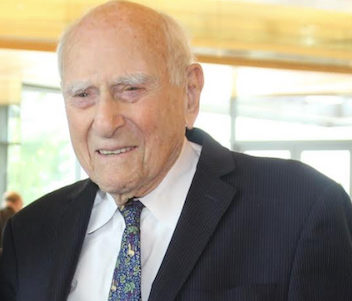Judge Weinstein: Social use of alcohol OK under supervised release

Just four months after he issued an opinion stating that supervised release was too punitive for marijuana users, Judge Jack B. Weinstein continued his push to change the conditions.
Judge Weinstein, who sits in the U.S. District Court for the Eastern District of New York, issued a 16-page opinion earlier this month stating that he would no longer suspend a person’s supervised release if they appear reintegrated into society but drink alcohol socially, so long as alcohol played no part in the underlying offense.
“The court will not find violations of supervised release and punishment by incarceration merely for habitual, socially acceptable use of alcohol except in unusual cases,” Judge Weinstein wrote. “When a supervisee appears to be reintegrated into society but uses alcohol socially, the supervisee shows no interest in stopping alcohol use and alcohol played no part in the underlying offense, the court will consider terminating supervision, releasing defendant as unimproved with respect to this habit.”

Brooklyn Boro
View MoreNew York City’s most populous borough, Brooklyn, is home to nearly 2.6 million residents. If Brooklyn were an independent city it would be the fourth largest city in the United States. While Brooklyn has become the epitome of ‘cool and hip’ in recent years, for those that were born here, raised families here and improved communities over the years, Brooklyn has never been ‘uncool’.